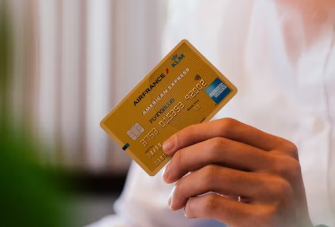How to Start a Business in New Zealand
If you’ve ever wondered what you’d need to do to start a business in New Zealand, look no further! We explain how to get started, walk you through tax and registration regulations and look at a few business essentials.
Begin with a Plan
You can’t underestimate the importance of a good business plan. When thinking about your business and what you want to accomplish, you’ll need to take the following into account:
- Whether you’re selling a product, service, or both
- If you’ll have a physical location or only an online presence
- Your target market
- How much financing you’ll need to launch the business
- How you intend to market your business to customers
- How you plan to grow your business
A strong business plan enables you to reach your goals more easily and makes your business more attractive to investors and potential partners.
If you’d like more help with business planning, you can download a “quick-fire” business plan template or a start-up business plan template from the New Zealand government’s website.
Once you have your business plan in writing, you’re ready to choose a business name.
Select a Business Name
In New Zealand, your next step before going too far down the registration process is ensuring that the name you want to use for your business hasn’t already been used by someone else.
You can do this by searching the New Zealand ONECheck system for your business name online. Keep in mind that if your preferred business name is already in use by another business, you’ll have to come up with a new name.
After you find a name you like that’s not already in use, you can register it through the ONECheck system.
You can also use ONECheck to register a domain name for a business website, begin the trademarking process for your name and set up social media usernames. This is the first step to protecting your intellectual property, including your business name.
Now that you’ve cleared your business name for use, it’s time to select the appropriate business structure.
Choose a Business Structure
Understanding which type of business structure is most appropriate for your business can be challenging. The most common types of business structures in New Zealand are:
If you’re not sure which business structure is right for you, the New Zealand Ministry of Business, Innovation and Employment has a business structure tool that can help you figure it out. If you’re still not sure which business structure will work best for your goals, you can always consult with a New Zealand business attorney.
Now that you’ve selected the best business structure for you, it’s time to get your New Zealand Business Number.
Obtain a New Zealand Business Number
All companies automatically receive a business number when they register with the Companies office; however, sole traders and partnerships will need to apply for a New Zealand Business Number (NZBN).
The NZBN is a unique identifier assigned to your business and contains key identifying information that customers and other businesses can use to interact with you.
While not required for sole traders and partnerships, it is free and enables your business to enter the NZBN database, making it easier for others to work with you.
Once you’ve gotten your NZBN, you’re ready to register your business in New Zealand!
Get Registered in New Zealand
All New Zealand companies, but not sole traders or partnerships, must register with the Companies Office, which also entails obtaining a RealMe® login ID and setting up an online account.
You may be asked to “incorporate your company,” which is the same as registering your company.
You’ll also need to register all company directors at the same time you register the company.
It will cost $10 to register a company name and $90 to incorporate the company.
Large companies will also be required to file financial statements in addition to other documents throughout the year. (Small businesses—including small companies, sole traders, and partnerships—are not required to comply with this regulation.)
Again, sole traders and partnerships aren’t required to register with the Companies Office.
New Zealand companies and other businesses are now ready to obtain New Zealand tax ID numbers.
Obtain New Zealand Tax Account(s)
If your business falls into any of the following categories, you’ll need to obtain an Inland Revenue (IRD) number:
- Company
- Partnership
- You have employees
- You sell goods or services
- You buy, sell, or transfer property in New Zealand
- You have a rental property business
An IRD number sets you up to pay New Zealand business income taxes.
Companies will also need a Business Industry Classification (BIC) Code. This code is a 7-digit number that indicates what your business does at a detailed level. For example, if you were an adult education teacher offering art classes you’d have a different BIC code than a construction business that builds roads and bridges.
All companies in New Zealand automatically receive an IRD number when they register through the Companies Office, but sole traders and partnerships will need to register for an IRD separately.
If your business earns more than $60,000 annually, you’ll also be required to register for a GST (Goods and Services Tax) number. You have the option of paying the GST monthly, every two months, or even every six months.
Your business may need additional permits, licenses or be required to follow specialised regulations in order to legally operate in New Zealand.
Obtain Additional Required Permits/Licenses
Some industries will be required to obtain special licenses or permits or need to follow additional regulations to operate in New Zealand, including the following business sectors:
- Food
- Trading
- Transport services
- Securities
This isn’t a complete list of every industry that could require a specialised permit or license.
In addition, certain industries are required to follow strict health and safety regulations.
If you’re unsure which licenses or permits your business will need, or which regulations apply to your industry, then you may wish to consult with a business attorney licensed in New Zealand.
Finally, you’re almost ready to greet customers and start selling, but first, make sure you haven’t overlooked a few business essentials.
Business Essentials
When planning your business, don’t forget about marketing—you’ll need to get the word out about your business somehow! Leverage social media to your advantage, and make sure you have a top-notch website to attract tech-savvy and younger consumers to your business.
If you plan to have a physical location, make sure it’s easily accessible, either by car or nearby public transportation. Check out whether GPS systems can find your potential business locations or if mapping software tries to send you to the wrong address. During this step, make sure to create a Google My Business listing so you appear on Google Maps.
While those may seem fairly basic, one thing new business owners often forget about is their point of sale system. A bad checkout experience can keep existing customers from coming back and put off potential customers who have heard negative reviews of your business.
For this reason, choose an Epos Now point of sale system. Not only can you run our software on a computer or tablet, but you can also use a Windows, Mac, or Android device. Few other POS companies give you this much flexibility and control.
Not only that, but this powerful system also integrates with EFTPOS payment processors. With this hardware, you can accept major credit and bank cards, as well as contactless payment solutions like Apple Pay.
Contact Epos Now today to learn more about our point of sale solutions.




